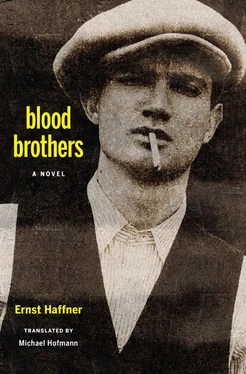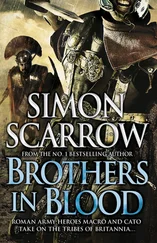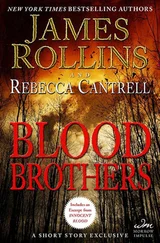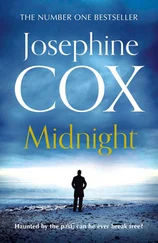This context shows that Blood Brothers shares several characteristics with contemporary novels prominently featuring the effects of the modern big city, the almost inescapable effects of class and poverty, the inadequacies of the law — all of which are rendered in a distanced, reportorial tone, describing dispassionately what happens, without rendering any ostensible judgment. Yet somehow the empathy of the reader is engaged on the side of the main characters, even those who are quite unsavory. The aim is clearly social criticism, sometimes with a moral undertone, sometimes without.
Embedded though it is in contemporary narrative aesthetics — which also extend to film (Fritz Lang’s Metropolis ), theater (Bertolt Brecht’s Rise and Fall of the City of Mahagonny ), expressionist poetry (J. R. Becher, Georg Heym), and paintings (George Grosz, Ernst Ludwig Kirchner, et al) — there are some distinguishing features in this novel. It focuses tightly on a small group of social outsiders: young boys between roughly ten and twenty years of age who have no place to go. Refugees from correctional facilities for wayward youth or abusive family situations, these youngsters have fled to Berlin in the hope of finding safety, some sort of freedom, only to find themselves in a desperate struggle for survival. Being underage and on the run from authorities, they literally have no identity: they lack the basic papers without which they cannot rent a place to live in; without a known place of abode they cannot be registered with the police; without this registration they cannot be legally employed. In short, until they become twenty one, they remain essentially wards of the state and will be institutionalized, even without a criminal record. But as the bulk of the correctional institutions “for the betterment of youth” house many recidivist runaways and criminals, they become — as they do elsewhere — schools for incipient and aspiring criminals.
That is certainly the picture painted here where potentially sympathetic policemen and judges are locked into the pattern even when all indications clearly advise a different approach, as in the case of two of the boys, Willi and Ludwig, who figure prominently in this novel. They will try to escape from the hamster wheel of illegality and petty crime and gang life, but the lack of papers and previous acts will prevent that until one of them comes of age. The bulk of the boys described here — girls play only a peripheral role, mainly as prostitutes — never even attempt to escape from their lives without shelter, food, or families. Instead, they try to find safety and companionship in Cliquen or gangs of up to sixteen boys that seem to form quite haphazardly around self-appointed leaders. Called Fred or Jonny, they provide occasional meals, cigarettes, guidance, even find and pay for places to sleep for all in relative safety from time to time. No one asks where they get their money. They all gratefully accept the temporary bounty from which they derive the obligation to do the same, should they come into some resources. Communal sharing establishes membership as much as sticking up for each other. Initiation rites and unwritten but generally known and observed “laws” hold the gang together, as do joint — and at times quite sophisticated — actions. Thus the gang that calls itself “Blood Brothers” grows and progresses from occasional criminal activity to organized theft and robbery, specializing for a while in distracting women in supermarkets and stealing their purses — a lucrative enterprise that bothers some of the boys, as they are robbing people who have little themselves. But while leaders like Jonny seem quite content to stay at this level of petty crime, others, such as Fred, graduate to more serious offenses, including breaking and entering and robbery. When they get caught, the gang disintegrates temporarily until Fred returns from prison and resumes gang life with a few of the old buddies. The gang will reconstitute itself with a new membership of equally desperate and lonely youngsters.
There is, however, an apparently successful attempt to break the cycle. Willi Kludas — whose exploits, including a harrowing train ride under the carriage of an express train, are given in greater detail — finds a younger soul mate, named Ludwig. Together they try to establish an identity through honest work. Having acquired some modest capital by shoveling snow, they concoct a scheme by which they become young entrepreneurs. They collect old shoes in the better parts of town, then refurbish and resell them en gros for a profit. This, however, places them outside the circle of the gang, as they no longer share their gains; it leaves them vulnerable in all directions, since they also lack the papers that would confer a legitimate identity upon them. When they are denounced to the police, they seem to be going back into the never-ending cycle; but Willi is close to his twenty-first birthday, which means papers and identity and legality. And he has promised Ludwig that he would wait for him and help him break out of his institution so they could start their successful and permanent break with the past together. In short, one of the overriding messages of this fascinating novel seems to be that alone you are totally at the mercy of a merciless reality, be that the big city or the legal system. Only by becoming a member of a group would you raise your survival chances but at the cost of continuous uncertainty and outsider status. A true friendship, however, and adherence to the rules of society just might allow you to establish your identity and some degree of safety. This striving for self-determination against heavy social and institutional odds makes the story of one of the gangs of Berlin such compelling reading. It allows the reader to empathize even when the author remains detached and aloof.
It is remarkable how this short novel reflects the concerns and issues of the time. The massive social dislocations caused in Germany by rapid industrialization and urbanization since 1890 was focused in Berlin as in a prism. This transformation was magnified by the great revaluation of values caused by losing World War I. For the German Empire this meant not only a reduction in size and importance, not to mention being saddled with war guilt and reparations; it also meant a complete upheaval of the social order. Nobility ceased to matter, parliament replaced monarchy, fortunes were lost and made without anyone quite understanding how. Everyone was looking for a new identity, sanctioned by society, with some stability and escape from what must have appeared as a never-ending loop of dispiriting and unsettling catastrophies. This book and the others of the time seem a metaphor for this search.
EIGHT BLOOD BROTHERS —tiny individual links of an exhausted human chain stretching across the factory yard and winding up two flights of stairs — stand and wait among hundreds of others to be admitted from the awful damp cold into the warm waiting rooms. Just three or four minutes to go now. Then, on the dot of eight, the heavy iron door on the second floor will be unlocked. The local welfare bureaucracy for Berlin-Mitte on Chausseestrasse jerks into life; the coiled line jerks into life. Limbs advance, feet shuffle, hands clutch the innumerable necessary papers. (In the furtherance of good order, the office has put out printed instructions that list them in endless sequence, and which twenty-four offices are responsible for issuing them.)
The queue has already reached the cash-office waiting room. There, with military precision, it splits into two smaller queues. One waits patiently to surrender its stamped cards to the hoarse-voiced office boy Paule, prior to receipt of payment. The second queue winds in front of the information counter in order to answer questions of who and where and where from, and then, with luck, to be issued with cardboard numbers. Thereafter, the individual parts will go into two other rooms to stand outside the doors of officialdom and wait with the patience of saints for their number to be called. The saints will have to be patient for five or six hours or more. The eight gang members join neither of the two queues but make straight for United Artists. Maybe they’ll be in time for a bench.
Читать дальше












